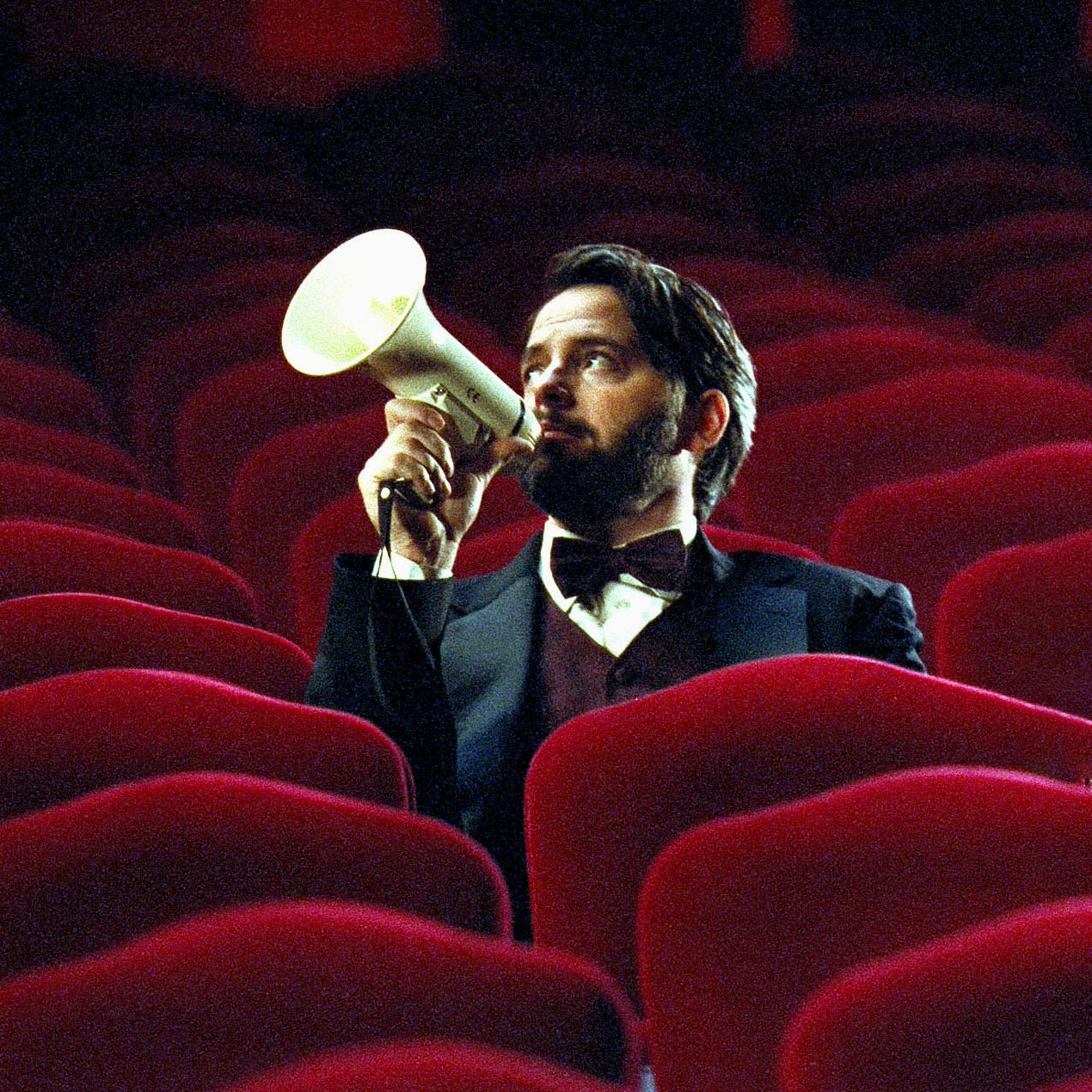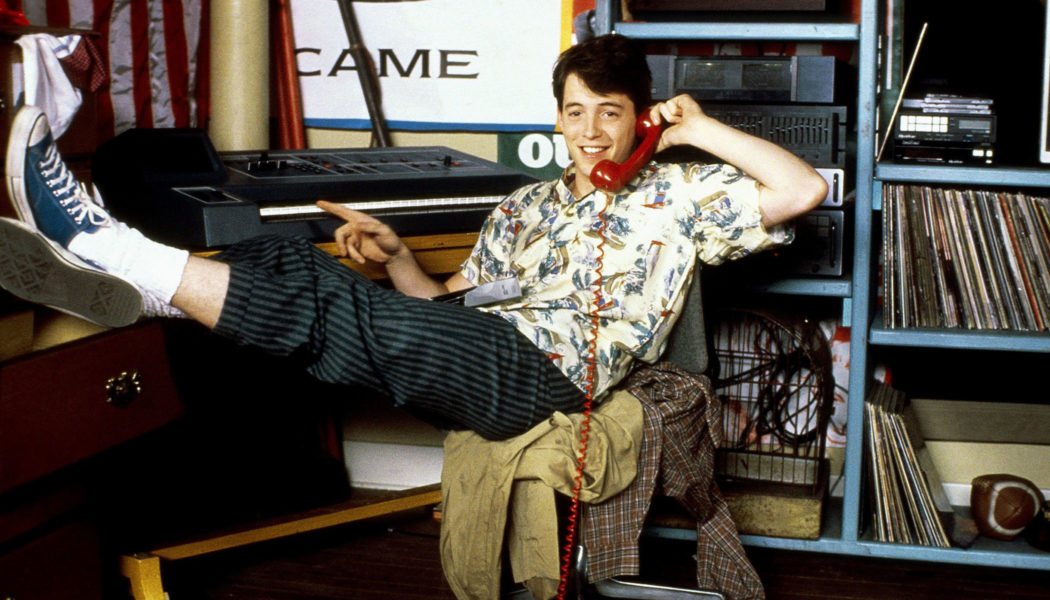An Interview with Matthew Broderick
aka Simba, Inspector Gadget, Ferris Bueller, Niko Tatopoulos, Leo Bloom, Steven M. Kovacs, Col. Robert Gould Shaw, David, Walter Kresby, Adam Flayman, Jim McAllister, Michael McPhee, Eugene Morris Jerome, Clark Kellogg, Brian Everett, Steve Finch, Mr. Fitzhugh, Jeffrey, Levar Mathis, Doug, John Van Tassel, Harold Hill, Dad, Husband, a Friend
Matthew Broderick has his act together. The legendary film and stage actor was kind enough to sit down with Whalebone to discuss things like whether Goobers still exist, how to solve this whole mass media consumption onslaught thing, the importance of going to the movies, why you should go watch Good Morning, Vietnam today and other very important life decisions.
Life moves pretty fast. If you don’t stop and look around once in a while, you could miss it.

WHALEBONE: What was your movie theater growing up? Do you remember your first time going to the movies?
MATTHEW BRODERICK: Wow. I don’t think I remember my first. I grew up on Washington Square and there was the 8th Street Playhouse—a movie theater on 8th Street, which was probably my most frequented movie theater. There were several around us. There was the Waverly, the Greenwich, the Art, and the 8th Street Playhouse, and the Quad. And the Quad is the only one that’s still there, on 13th street. Those were my haunts.
WB: As a kid, what was the first movie that really struck you?
MB: There are a bunch. It might sound pretentious, but Charlie Chaplin movies. My mom took me to see Modern Times. She took me to some art house or something and it was showing. I remember we waited, I must have been very young because I remember waiting in line on the street. I just loved that movie. I loved Chaplin. That’s one of the very early memories at a movie theater.
WB: What movie, if you can recall, has had the most impact on you?
MB: I think Blazing Saddles and Young Frankenstein for one had a huge effect on me, particularly Young Frankenstein—I owned a record album that had most of the dialogue on it, and I listened to it a lot. It was a different world. I also happened to have loved the Universal horror movies when I was a kid, too. You know, Frankenstein and Bride of Frankenstein were on TV a lot then. Those were the big influences, truthfully. They had a thing called Creature Feature and there were a couple of TV programs that would show old horror movies, which probably did a lot to shape me into the mess that I am.
The typical one—The Godfather. My friends and me, we’d say something in Italian or pretend to try and shoot the other one right in the gut—so that was a big influence. Woody Allen, that kind of self-deprecating charm—I was very enamored by Play it Again, Sam and Annie Hall.
Night of the Living Dead deeply, deeply frightened me. And, like everybody else, Jaws made me afraid of the ocean forever. Sorry, I think that’s more than one.
WB: There was a line in a movie, “Life moves pretty fast. If you don’t stop and look around once in a while, you could miss it.” That line might be more applicable today for society-at-large than in 1986.
What would you say your pace is now, and has that line impacted you or made you be more aware of your pace over the years? So kind of two things. What’s your pace these days, and over the years, how has your pace been?
MB: I do hear that line all the time. I remember when I read it I was like, “Stop and smell the roses seems like a prettier line to me.” It doesn’t seem that original to me, but it had a big impact on people. I think that whole movie is kind of about that— which is good and important.
I like to slow down. I mean, I’m not a big multi-task person. My mind doesn’t do very well with a lot of tasks at once, so I like to go slow and try and notice things.
Life has got more and more things all happening at once, grabbing at your attention and I don’t like that part but I can’t help it either. I mean, I look at my phone all day like everybody else—the world has changed. I once saw an article that said the telephone had changed everything and we’ll forever be interrupted at dinner by that ringing instrument. And then before that the telegram and telegraph, and I think every generation feels they’re the busiest. And I know it seems like we really are, but I’m curious. I have a feeling everybody always feels they’re the most distracted.
Nothing can replace the community of watching something together— it really does become a group, an organism. There’s just something about it—it’s a deeper experience.
WB: With this growing consumption of content and media, how do humans encourage quality versus quantity?
MB: God, how do you do that? I mean, that’s the question. I suppose I wonder what it means to consume? I guess there’s more available to everybody, but I don’t know if they really take more in. I don’t know how many fictional stories you can really digest in a year. I don’t know if you can add to it exactly, but you can sort of vaguely touch on more things.
There’s no fighting city hall—and with the pandemic, I’ve turned into one of these people who watch endless limited-series TV shows and they’re great, a lot of them. Really great. But for me as an actor, it’s great that there’s always more content being made— but the problem with that is it means a diluted pool. If I knew the answer I think I’d be the President. It’s a good question.
WB: What’s the benefit of going to a movie theater versus watching things at home?
MB: I don’t think I’ve been to a movie since the pandemic started. But I really, really miss it. I love being at the movies and I love being at a play. I think being with the audience and sharing one of these experiences is fantastic. I’ve gone back to plays now and I just missed it so much. It makes all the difference.
I do know nothing can replace the community of watching something together—it really does become a group, an organism. There’s just something about it—it’s a deeper experience.
WB: This is a six-part rapid-fire challenge.
So if you have a Red Bull, shotgun it now. We’ll say a phrase or a movie and then you tell us just one word or one sentence that comes to mind.
… Cable Guy.
MB: The color blue.
WB: The Lion King.
MB: Jesus Christ. I loved meeting James Earl Jones. And the incredible thrill to be in one of those Disney cartoons that I grew up on. I was suddenly in one and I found that thrilling and I loved watching how they made it.
WB: The Producers.
MB: Gene Wilder and Zero Mostel right off the bat. Mel Brooks, my idol. Nathan Lane, my great friend, and the greatest actor. That was a very, very thrilling experience, one of the most thrilling in show business that I’ve had.
WB: War Games.
MB: My first lead, first leading man role, or leading ingénue role. And a great story, in my opinion. Really well-plotted, kind of perfectly made, entertaining movie.
WB: Godzilla.
MB: Really fun people. It’s a bittersweet thing because I thought it got beat up a lot while it was making $400 million, or whatever it made. But I think about the experience of making it, which was actually extremely fun. I loved Roland Emmerich, the director. I had a very, very good time making that movie, though I was wet almost all the time. Always wet.
WB: Ferris Bueller’s Day Off.
MB: John Hughes’ face. I just think of John. None of us knew what an impact that movie would make when we made it, certainly. I don’t have one sentence for it. I’ve got to have a few sentences.
I have a very good memory of it. I feel it’s a very satisfying movie. And I got to work with my friend Alan Ruck, Jeffrey Jones—everybody in it I enjoyed. Jennifer Grey. And John. John Hughes was a unique filmmaker and a master of what he did. I’m very grateful to be in one of his best movies.
WB: From what I gather, remarkable consistency seems to be something that follows you around. You’re not far from something good happening. What is the reason for that?
MB: I’m as amazed as anybody that I lasted this long. I don’t have a plan. I just sort of try to make the right decision about what to do, and sometimes I’m right and sometimes I’m not. I work very hard and I really love it. I have loved acting since I was a teenager. And some of the time it can be horrible, but when it’s good, it’s really good.
WB: You seem like you’re a very humble person. Are there actors out there who are underrated or maybe on their way up or who never got the recognition they deserve?
MB: My father, I feel, was underrated. I don’t think being underrated is bad. Bruno Kirby, who was a good friend of mine, was a wonderful actor. He did very well, but he didn’t really get his due, partly because he maybe didn’t live long enough. But if you know who that is, he was in Godfather II, and he was in The Freshman and Good Morning, Vietnam, and was basically just the funniest person I’ve ever met. And I wish he’d had more of a chance to show that.
There are a lot of people who suddenly make great comebacks. Like Kieran Culkin. I always thought, well, this guy’s great. It took a little while but now everybody knows about him. I would’ve put him on that list, except now he’s a much bigger shot than I am, so he could put me on the list. Alan Ruck, I’m glad to see get some notice again, which is very well deserved. There are actors who might not look to be a big star but they’re incredibly great. There are millions of them.
If somebody got M&Ms I would eat them.
WB: Your go-to order at the movie theater?
MB: Popcorn is the main, absolutely essential thing, and possibly the reason for going to the movies. I don’t usually pour the fake butter on it because life is for living. I want to live. If somebody got M&Ms I would eat them, I would eat Goobers and Raisinets— do they still make Goobers?
WB: Is there anything else you’d want people to know about the movies?
MB: I would just encourage people to go to the movies. It’s so great. And don’t forget about black and white movies and TCM—there’s a whole wealth of great movie history.










